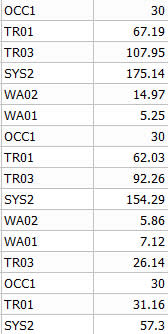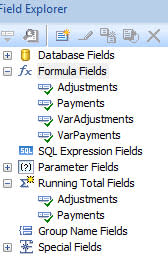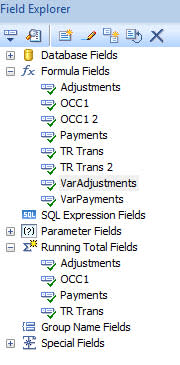Hello,
I have a little problem - not sure if it is trivial however can't seem to make it work.
I have a simple formula:
if {table1.transaction} in
['tra1', 'tra2', 'tra3', 'tra4', 'tra5]
then {table2.amount}
else 0
Now, I have another transaction - call it 'sometra'
so what needs to happen is when {table1.transaction}='sometra'
then i want to make 'tra2' and 'tra3' from table 1 to show $0 instead of the amounts which are legit but actually doubling the end result.
Please help, thanks
I have a little problem - not sure if it is trivial however can't seem to make it work.
I have a simple formula:
if {table1.transaction} in
['tra1', 'tra2', 'tra3', 'tra4', 'tra5]
then {table2.amount}
else 0
Now, I have another transaction - call it 'sometra'
so what needs to happen is when {table1.transaction}='sometra'
then i want to make 'tra2' and 'tra3' from table 1 to show $0 instead of the amounts which are legit but actually doubling the end result.
Please help, thanks




